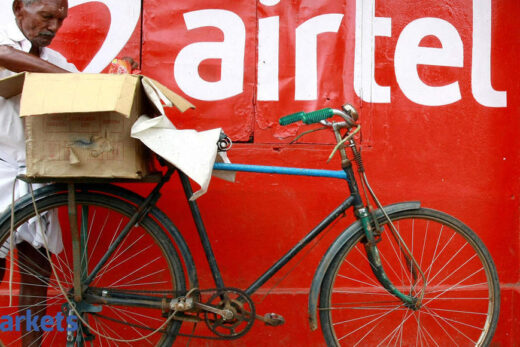The cabinet was widely expected to take a decision on a so-called relief package for the telecoms industry, which would have helped all wireless carriers but especially the embattled Vodafone Idea.
The package, while meant for giving relief to an industry with more than Rs 8 lakh crore of debt, was aimed to specifically ease cash-strapped Vodafone Idea’s immediate cash flow woes and help in its bid to remain in a market that has Reliance Jio Infocomm and Bharti
as the other two private players.
The country’s telecoms sector was upended by tycoon billionaire Mukesh Ambani’s Jio when it entered the market in late 2016 with free voice and cut-price data plans.
Jio also pushed several rivals out of the market, while others – such as the Indian unit of Britain’s Vodafone and local Idea Cellular – were forced to regroup.
Vodafone Idea –which had Rs 920 crore in cash and cash equivalents at June end and has Rs 1.9 lakh crore of debt – faces Rs58,254 crore in AGR dues, of which it has paid Rs7,854 crore. Analysts fear Vodafone Idea may fall short of its annual payment commitments, including an AGR instalment and spectrum payment, by around Rs23,000 crore in FY23, pushing it towards bankruptcy.
A senior official had earlier said to ET, “VIL has lost ground in several markets. If the government lets VIL surrender under-utilised spectrum, the company can review its spectrum needs and decide to vacate certain markets, which can reduce its debt burden as well as losses,” brokerage BNP Paribas said in a report. “VIL can consider selling its network/subscribers to competition in those circles, helping it reduce the debt burden further.”
Vodafone Idea dropping out of the market would mean bad news as the telecom sector would become a mere two horse race.
As things stand, the JV between UK’s Vodafone Group and India’s diversified Aditya Birla Group (ABG) needs to pay around Rs9,000 crore as its next AGR instalment, which falls due in March 2022. A deferral option of four years could push its AGR payout of almost Rs 36,000 crore by that much, easing its immediate cash flow problems, said experts.
Additionally, Vodafone Idea pays licence fees and SUC of about Rs 5,000 crore annually, out of which the former is around Rs3,200 crore. Also, it needs to pay around Rs14,000 crore toward spectrum payments every year, starting April 2022.
For Airtel, any deferral of AGR payment would allow it to push payouts worth about Rs 18,000 crore (less than Rs4,500 crore annual installment) by four years. However, it remains to be seen whether it will opt for a deferment of spectrum payments, since there will be an interest element attached to the moratorium.



